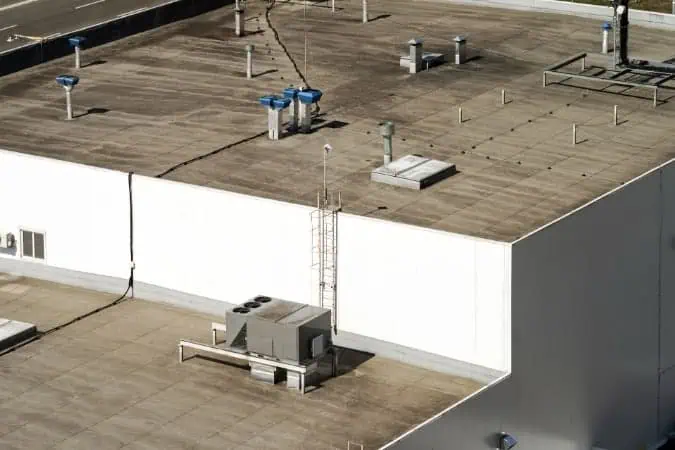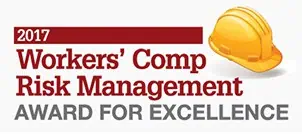Whether you are a facility manager or owner, there are several variables to consider when choosing commercial roofing systems. The type of facility and its roof need to be taken into consideration. Businesses from schools to hospitals, restaurants to hi-rise apartments require specific planning to protect the workplace and what’s inside.
Each roof material and type requires specialized installation, applications, and maintenance specific to the building and the business. Becoming familiar with the various types of commercial roofing systems available will help you make a well-qualified decision.
Shapes of Commercial Roofs
When choosing commercial roofing systems, addressing the slope of the roof is important. Roofs are classified as low or steep slopes.
- Low Slope Roofs (sometimes called “flat roofs”) are most commonly seen on commercial, industrial, and other larger buildings. They are used for big box stores, shopping centers, and warehouses. Building codes typically require ¼” per foot slope. They look flat, but the water should slope toward a gutter or drain to remove it from the roof. . Business owners have several choices of materials for flat roofs, including TPO, PVC, EPDM, modified bitumen, or built-up roofing systems.
- Steep Slope Roofs are less common on commercial properties but very common for single and multi-family homes. The steep slope roof can be seen from the ground, so the look or aesthetics of the materials are often considered. Their increased slope makes snow and water runoff quickly. Materials used for ed steep slope roofs often include shingles, slate, tile, or metal.
Choosing Commercial Roofing Systems
Once the roof’s slope is identified, you can choose the material that best suits your needs and budget. Commercial roofing systems play a huge role in the health and longevity of the building. Here are some of the most common commercial roofing systems.
- TPO and PVC Roofing Systems are lightweight thermoplastic materials with reflective properties. The materials resist chemicals, punctures, tears, and UV light. They can withstand high temperatures, fire, and high winds. Their outstanding performance makes them a popular choice for commercial roofs. TPO is the most commonly used commercial roofing system due to its performance and low installed cost.
- EPDM Roofing Systems are single-ply roofing systems constructed of rubber. It is known for providing exceptional performance and longevity. EPDM offers design versatility, durability and resistance to UV light. It’s a popular choice because it is durable, waterproof, and tough. EPDM membrane is most commonly black, but is also available in white.
- Built-up Roofing (BUR) is often called a “tar-and-gravel” roof. Layers are created using combinations of bitumen (asphalt) nd reinforced fiberglass fabric. The layers are called, “plies.” So, a four-ply roof means it has four layers of the reinforcing membrane applied in layers of asphalt and covered with gravel to protect it from the sun’s UV rays. This system allows for flexibility as you can choose how many layers you want. More layers increase the roof’s strength.
- Modified Bitumen Roofing uses asphalt and reinforcement but manufactures them in a plant to be applied on the roof with hot asphalt, torches or cold adhesives.
- Metal Roofing systems are for steep slope roofs and add an eye-catching protective layer. They are sustainable, strong, and provide fire resistance. There are numerous choices for metal roofs, including metal panels, aluminum, stainless steel, and copper.
Facility managers and business owners should work with experienced commercial roof professionals who understand the local climate and are conscientious about the needs of the business. Contact us to speak to a professional about which of the available commercial roofing systems are right for your facility. We look forward to serving you.



